Almost every Indian woman knows how to make that perfect roti. To leverage this inherent skill of most rural women, an NGO in Khopoli has employed 50 women in a khakhra-making unit
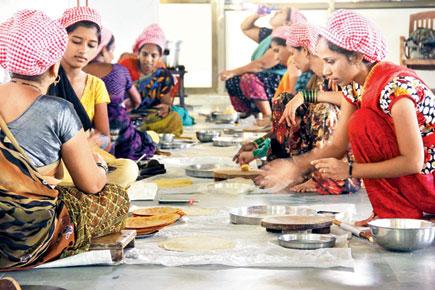
Around 80 km from Mumbai, in Khopoli, is a spiritual centre, Shrimad Rajchandra Aatma Tatva Research Centre, founded by Pravinchandra Mehta. Its NGO, Shramik Naari Sangh (SaNiSa), last month, inaugurated a Mahila Gruh Udyog that employs women from the nearby villages to make khakhras.
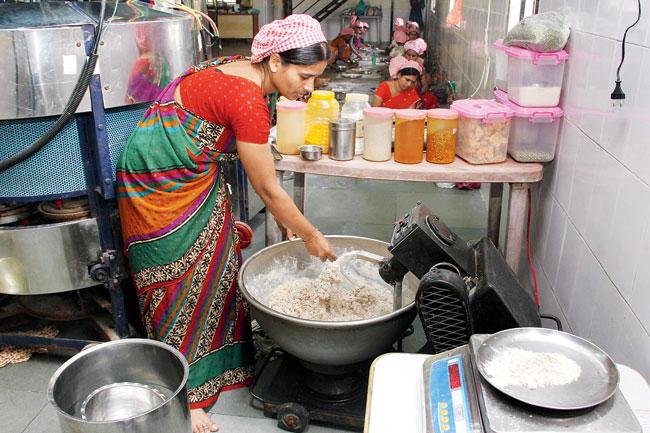
The first step to making khakhras involves mixing the flour, salt, oil and spices in the specific proportions into a mixing machine. Two women have been trained at the centre to make this dough
ADVERTISEMENT
“This 3,600 sq ft workshop has employed around 50 women, aged between 18 and 45, who are paid a daily wage, which is on par with the other industries,” says Shruti Sheth, who has been managing the khakhra unit, Chaakri, since April 2013, when it was a smaller set-up.
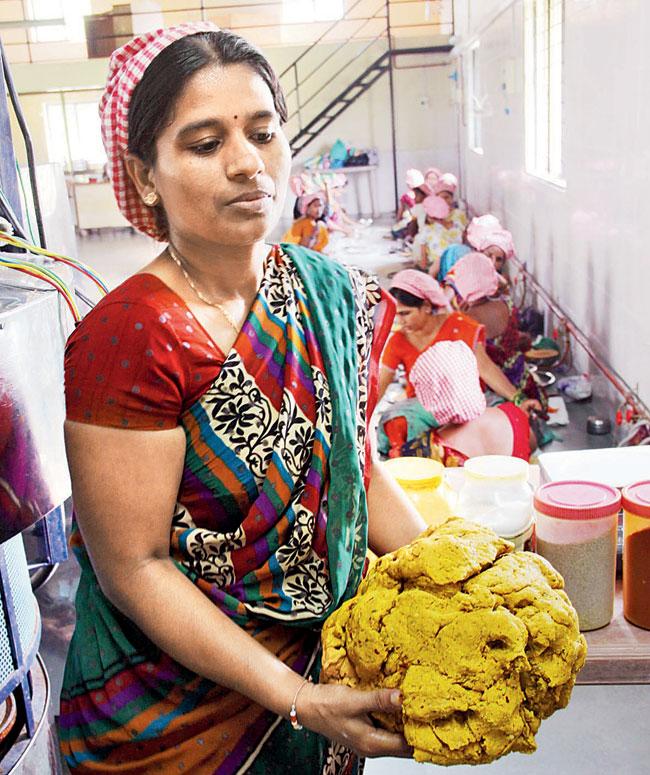 The dough is then evenly distributed among the workers. Along with the dough, the exact requirement of oil and dry flour is also distributed to them
The dough is then evenly distributed among the workers. Along with the dough, the exact requirement of oil and dry flour is also distributed to them
How it all began
It started as a smaller khakhra-making unit for 10 to 15 women, in a small kitchen, Sheth tells us, adding, “Two women, Jyotsna Shah and Simi Thapar, trustees of the NGO, took the onus to expand the unit.”
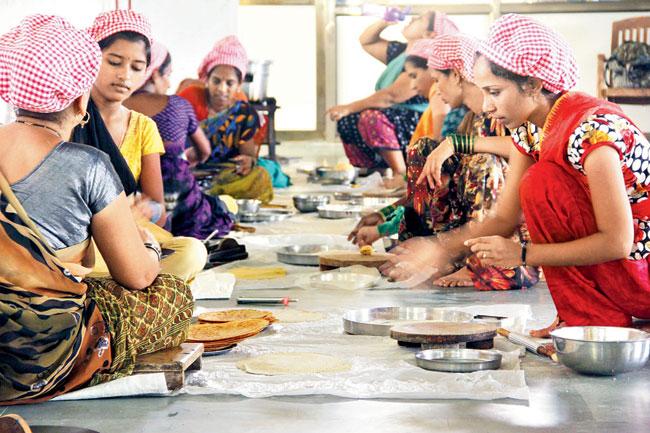
Around 50 women toil in this workshop. On an average, they make 75 kg of khakhras every day
Today, the khakhras made by the underprivileged women are sold in Mumbai, Delhi, Chennai, Kolkata, Surat, Bangalore and Daman. Plans to expand to Pune and Nagpur are underway. “Unlike many rural areas in India, the women of Sudhagadh Taluka in Raigad here, in particular, lacked any specialised local skill. That’s when we figured that one thing that any Indian woman can master is the art of rolling rotis. To leverage this inherent skill of most rural women, we initiated the ‘khakhra’ project. We impart eight to 10 days of training before they begin work,” says the 33-year-old, who quit her job at JP Morgan and moved to the ashram last year.
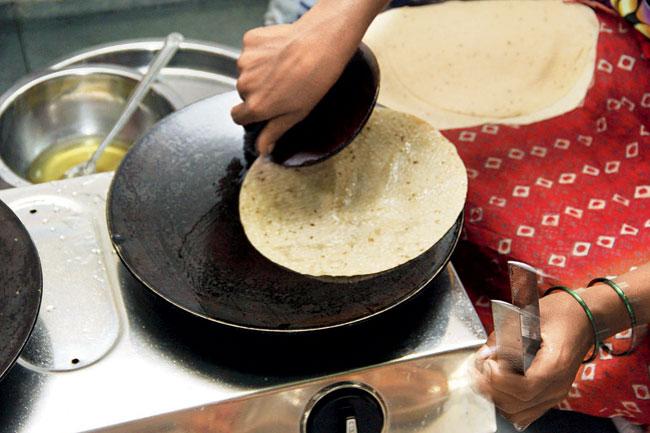
A woman roasts a khakhra on the stove
Staff welfare
“Most of the women are uneducated and have minimal exposure to the world outside. We have conducted intensive education programmes and taught them the nuances of personal hygiene. We check their nails and hair twice a week, and distribute sanitary napkins every month,” says Sheth, who ensures the women don a cap while working in the factory.
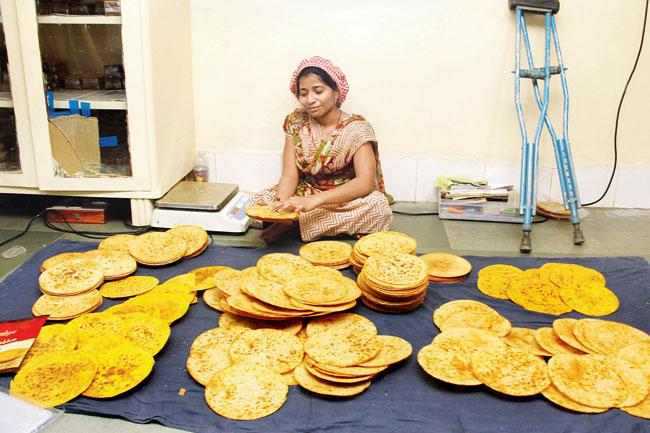 Each khakhra is checked by the quality-control team. Ideally, a plain khakhra should weigh 12 gm and a spiced one should weigh 18 gm. The team removes the pieces which are burnt or too thick. Depending on the orders, the khakhra packets are picked up for distribution twice a week
Each khakhra is checked by the quality-control team. Ideally, a plain khakhra should weigh 12 gm and a spiced one should weigh 18 gm. The team removes the pieces which are burnt or too thick. Depending on the orders, the khakhra packets are picked up for distribution twice a week
“Another aim is to motivate the young girls to study further. Last month, we got the Food Safety and Standards Authority of India (FSSAI) licence, which is mandatory for any food set-up.”
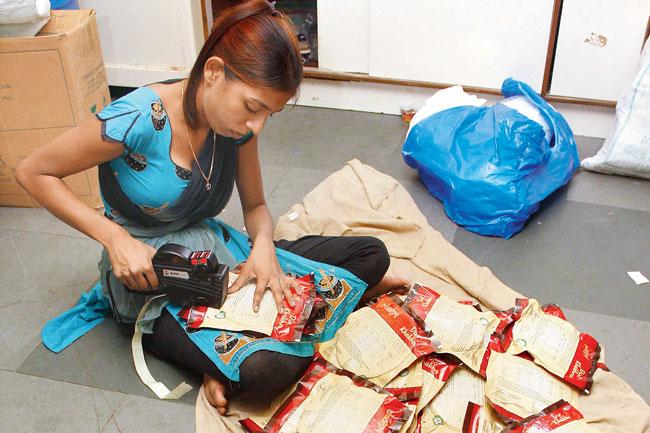
In the final step, a worker packs the khakhras
With the satisfaction of uplifting the lives of women, and turning them into entrepreneurs, Sheth neither misses Mumbai nor its corporate rat-race. “There’s so much more substantial work to achieve here,” she says.
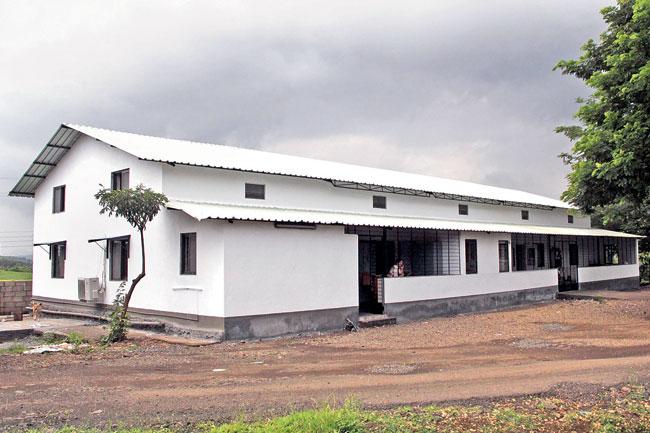
Gruh Udyog, Raigad sprawls across an area of 3,600 sq ft. Pics/Sameer Markande
 Subscribe today by clicking the link and stay updated with the latest news!" Click here!
Subscribe today by clicking the link and stay updated with the latest news!" Click here!







